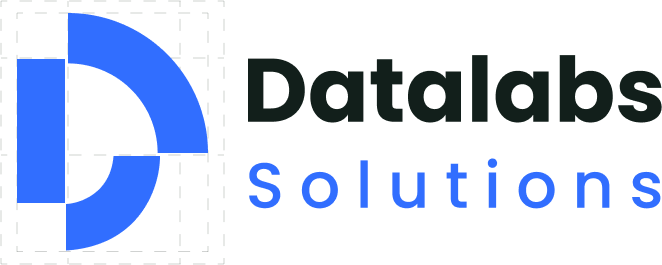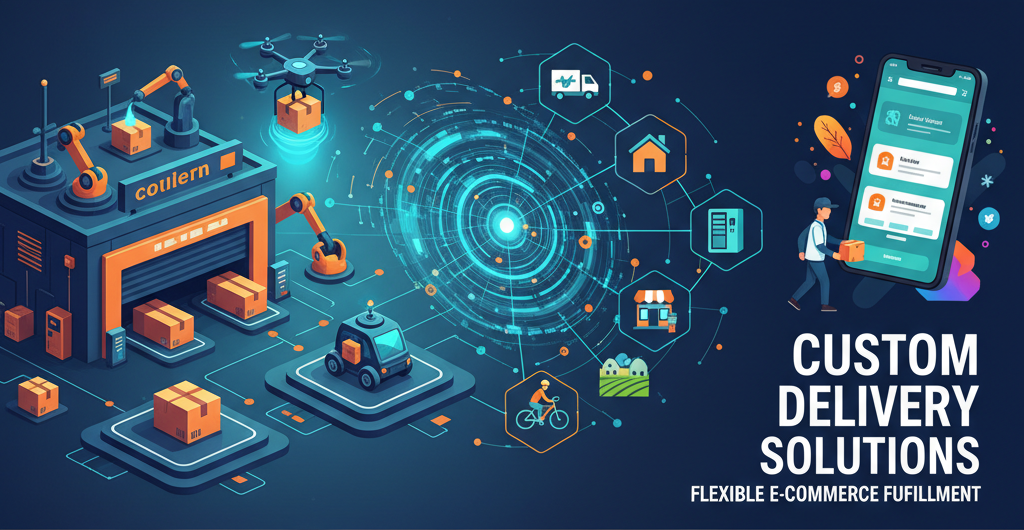Imagine this: a shopper adds a sleek pair of wireless earbuds to their online cart after browsing for 20 minutes, only to reach checkout and face a hefty shipping fee. Frustrated, they abandon the purchase entirely.
This scenario is far from rare; it represents millions of abandoned e-commerce carts every day. According to Baymard Institute, the average cart abandonment rate is roughly 70%, with unexpected shipping costs accounting for nearly 55% of lost sales. In total, this problem drains an estimated $18 billion in annual revenue from global e-commerce.
With global online retail sales projected by Statista to surpass $8 trillion by 2027, the demand for smarter, faster, and more flexible logistics is at an all-time high.
Enter Custom Delivery Solutions
Custom delivery solutions represent a new era of personalized logistics and e-commerce fulfillment, bghfdzone that prioritizes adaptability, speed, and customer experience. These systems combine technologies like real-time tracking, AI-powered route optimization, and 3PL (Third-Party Logistics) integrations to revolutionize how online retailers manage fulfillment.
By moving beyond one-size-fits-all models, custom fulfillment systems empower businesses to scale efficiently, lower costs, and exceed modern consumer expectations.
Understanding Custom Delivery Solutions in Today’s Market
At its core, a custom delivery solution is a flexible, data-driven logistics framework tailored to each brand’s unique needs. Unlike traditional shipping carriers that rely on fixed schedules and pricing, custom delivery solutions offer adaptive control through:
- Dynamic routing and predictive delivery scheduling
- Eco-friendly packaging and sustainability options
- Integrated last-mile delivery networks
- Real-time order visibility across all sales channels
This approach ensures that fulfillment operations from warehouse picking to doorstep delivery stay efficient and responsive.
According to McKinsey & Company, retailers leveraging AI-powered logistics and custom 3PL integrations reduce delivery times by up to 40%, while cutting costs by 20%.
Moreover, platforms like Shopify, WooCommerce, and BigCommerce now allow seamless API integration with custom shipping management software, bridging the gap between online sales and physical delivery.
The Pitfalls of Traditional E-Commerce Fulfillment
Traditional e-commerce fulfillment, dependent on standardized carriers and fixed warehouses, can no longer keep pace with customer expectations. Key challenges include:
- Scalability issues during peak seasons (e.g., Black Friday or Cyber Monday)
- Slow delivery speeds, leading to up to 23% of cart abandonments
- Poor reverse logistics, with return rates twice as high as brick-and-mortar retail
- Inventory mismanagement that leads to overstocking or stockouts
According to Forbes, over 80% of online shoppers expect free and fast delivery, and failing to meet that expectation often results in churn.
Custom delivery solutions address these pain points through smart inventory forecasting, multi-warehouse networks, and real-time fulfillment automation.
Key Benefits of Adopting Custom Delivery Solutions
- Enhanced Flexibility – Adapt instantly to market shifts, traffic disruptions, or seasonal spikes using AI-powered routing systems.
- Operational Cost Reduction – Businesses save up to 30% in warehousing costs by eliminating overstaffing and idle stock.
- Customer-Centric Experience – Offer live package tracking, proactive delivery notifications, and local 3PL partnerships for faster service.
- Higher Customer Retention – Transparent delivery options and fair pricing improve satisfaction and boost repeat purchases.
- Sustainability Advantage – Use biodegradable packaging and carbon-neutral shipping to appeal to the 54% of shoppers prioritizing green delivery.
- ROI-Driven Results – Custom 3PL integrations can improve fulfillment KPIs by 25–37%, lowering overall costs and increasing conversions.
How Custom Delivery Solutions Integrate with Modern E-Commerce
Seamless integration is what makes custom logistics management a game-changer. Through APIs and automation tools, e-commerce platforms can connect their stores directly to advanced delivery systems.
For example:
- Machine learning predicts customer demand and auto-adjusts inventory distribution.
- 3PL software manages end-to-end fulfillment, including returns and reverse logistics.
- Real-time dashboards provide visibility into every stage of delivery, enhancing customer trust.
A mid-sized retailer integrating custom delivery via WP Travel Engine or similar systems can automate routing, select optimal couriers, and achieve on-time delivery improvements of up to 40%.
The Future of Flexible E-Commerce Fulfillment
The next wave of logistics innovation will revolve around AI, automation, and sustainability:
- AI-powered micro-fulfillment centers in urban areas will slash delivery times by 50%.
- Drone and autonomous delivery will redefine the last-mile experience.
- Green logistics and zero-waste packaging will become non-negotiable.
As e-commerce supply chains evolve, businesses that embrace customized delivery frameworks will lead the way in both customer satisfaction and profitability.
Conclusion: Embrace the Custom Fulfillment Revolution
Custom delivery solutions are the backbone of modern e-commerce logistics, empowering brands to reduce costs, streamline fulfillment, and meet rising customer expectations.
At Datalabs Solutions, we specialize in building custom delivery and fulfillment systems that integrate AI routing, live tracking, and scalable 3PL networks, helping businesses transform how they manage logistics.
Don’t settle for outdated fulfillment models. Download our free checklist for evaluating 3PL and e-commerce integration options, or schedule a consultation to discover how a custom delivery solution can future-proof your business.

